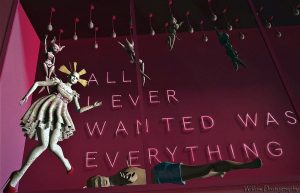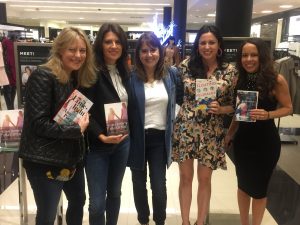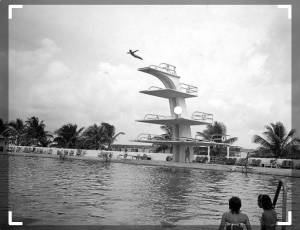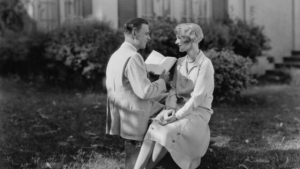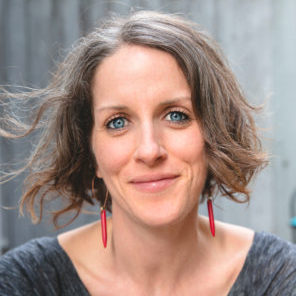Publicity
It’s so good to be back here on Writer Unboxed after a year’s sabbatical hunkering down and focusing solely on my work helping authors build buzz and visibility at BookSavvy PR. I’ve missed being an active part of this wonderful community (though I’ve still been stalking), and have been bursting with thoughts to share from the frontlines of promotion.
Many of those thoughts suddenly feel less relevant, though, as we all stand paralyzed with shock before the Coronavirus crisis. People across the planet are being forced to adjust in ways we never imagined, and the writing community—despite a penchant for solitude that might suggest we’re relatively “safe”—is no exception. On top of losses ranging from jobs and livelihoods to favorite writing spots in coffee shops and libraries, the cancellation of launch events has come as an especially painful blow. Gratitude to Teri for the initiative to support those whose launches are suddenly un-scheduled.
Yes, it’s an immense disappointment. And yes, it is crushing to imagine not having that well-deserved, long-anticipated celebration and the bond of community it brings. This is a huge, painful loss. But if you are also biting your nails about the impact on your book’s success, my advice from the promo trenches here is: breathe. None of this is as gloomy as it might feel. Need convincing? Here is my reasoning, based on many years on the frontlines:
You Can Reschedule – and There’s a Silver Lining
This is quickly becoming the year of cancellations—and resilience. In the spirit of resilience, the show must go on. Take steps now to reschedule your launch. Your local bookstore may be shut at the moment but you can be in touch with the owner. If they are struggling as sadly, many independent bookstores are right now, and don’t know what the future holds, make a backup plan: a library, or somebody’s home. Invite the bookstore staff and owner too. It might help boost their morale.
And in the meantime, take comfort in knowing that postoning your launch event means you can look forward to it for that much longer, can build buzz in the lead-up to it that much longer, and that you have the support of many amazing communities as Allison Hammer mentioned last week here on WU.
It’s Okay if Your Launch Event and Publication Date Don’t Align
Maybe the idea of rescheduling your launch event worries you because you’ve heard that a launch must happen around the time of publication. Don’t let it. Perhaps because traditional publishers prefer to see as much buzz and as many sales as possible around a publication date, there is a huge amount of pressure on authors to do everything in their power to create that initial bang. But trust me: the bang can happen at other times, too. Books have a long shelf life. (Pun intended) I’ve known and worked with dozens of authors who for various reasons don’t hold a launch event or even begin promotion of any sort until months after a publication date at earliest, and their books have gone on to […]
Read MoreFor aspiring fiction writers, the typical model of professional practice is to write the whole thing then shop it around, whether to agents, publishers, or directly to readers through self-publishing and self-promotion. Payment (if any) happens long after the work is done. This means not only that income is almost always a gamble, but that critical work time is financially unsupported and often hard to come by. I work as a research administrator for scientists, who also have to do a lot of work before any payoff. The ones I know support their work largely through grants and fellowships. While grants for writers aren’t as numerous (or as lucrative) as grants for scientists, they are out there. This post is a mini-introduction to strategies for finding, selecting, and applying for money to write by. Grants for writing won’t make you rich or give you a cushy life, but they might give you the quiet time you need to finish the critical work.
Types of Funding. There are two basic types of funding available for writers—grants and residential fellowships.
To successfully apply for a grant of any variety requires three steps: A. finding grant opportunities, B. selecting among all those enticing options the opportunities that are worth your time and effort, and C. writing a killer proposal. [This post covers items A. and B.; a later blog will discuss item C.]
A. Finding Grants/Fellowships to Apply For. The internet has made searching for grants easier than ever. You can use google—try typing in ‘best writer’s retreat in x” or “grants for writers with families” and see what shows up. But there are some websites that have done some of your searching for you already. The following is a list of some useful web resources. [Readers–If you’re aware of other resources that should go on this list, please add it to the comments and I will add to this list]
Read MoreThere are plenty of great things about writing and publishing novels. But today, I’m not here to discuss any of them.
No, today it’s time to talk about three of the necessary evils a novelist deals with along the way. While these aren’t the only three tough tasks we have to tackle, they’re the ones I’ve heard writers decry most often as they work on their journey toward publication.
You need to write a query letter (ugh). You need to write a synopsis (ouch). And you need to be able to sum up your entire novel in one simple sentence (how?!).
So since each of these is a necessary evil, I thought I’d address a) just how necessary and b) just how evil each one is for the average writer. Let’s begin!
The Query Letter. How necessary? 9 out of 10 if you’re seeking traditional publishing; if you’re going the indie route, make that a 0 of 10. How evil? Mmm, let’s say 7 or 8 out of 10 for most of us.
Look, query letters are tough. But the job of the query letter isn’t to describe your entire novel. It’s just to whet the appetite of the agent to ask for more. If you can frame out what makes your novel especially intriguing, include any special credentials that show why you’re the right person to write it, and leave the agent wanting more, you’ve pretty much got it covered. Easier said than done? Absolutely. A necessary part of the process for hooking an agent? Pretty much totally, unless you happen to hook someone in a pitch session at a conference, and even then, you’ll probably want some kind of query/cover letter to re-introduce yourself when you send your materials along.
The Synopsis. How necessary? Maybe 7 out of 10. How evil? Yeah, that’s a 10. It’s the most.
Read MoreI appreciate advice, and I especially like tips. I may not use a specific tip in my own life, but I’ll store it my head and pull it out when someone else might need it. And you writers, you always have great advice to give about lessons learned. Much of what I’ve done as a public relations pro has been to guide clients on what they can do to educate and persuade their audience.
When I first spoke with playwright and debut novelist Frank Strausser back in August, I was intrigued. He had advice I hadn’t heard before:
“Writers should take acting classes.”
“More authors should gather their friends to read their books aloud.”
And Strausser’s book, entitled PLASTIC, had an outrageous cover. It was so shocking, so dramatic, so FX Network. And given my profession, it’s no big surprise that I particularly like drama. I use it. Often.
In my earlier PR years, I would script my pitches to the media. I did so much cold calling, and I had such a range of clientele, it was an absolute to get the messaging out, but to also not sound like a moron. I would practice my pitches aloud at home while cooking or cleaning. What’s the hook? How do I personalize this pitch for said journalist? Why does she want to hear this?
As a mom of two younger children, I read stories to them each night. And I spent a year reading Harry Potter and the Sorcerer’s Stone to them. Reading only a few pages at a time aloud, I connected to the book in a way that was different. So, in many ways, Strausser was speaking my language during that August call.
Here’s a Q&A with this intriguing writer. Perhaps he’s speaking your language too.
1) A literary agent once said to you “Your writing needs to be not true to life, but bigger than life.” What was your initial reaction to this? And what did you understand it to mean.
The problem with a big note like this is that it is so sweeping. It’s not something that is so simple to address either. Some of the problem is that most of what we write is deeply felt, but does it engage? Does it excite? Does it shock? A simple reading of this note is that my writing needed more drama. I guess what was hardest about this note is that I didn’t have the tools to fully understand how to get there. And I wouldn’t until I studied story structure with Robert McKee and acting at the Beverly Hills Playhouse.
The problem with being too true to life is that life doesn’t have a dramatic arc. Things feel dramatic at the time but they’re random and drama requires an artificial structure. Beats. And they need to build.
Further, as I would subsequently learn in studying with the late Milton Katselas at the Beverly Hills Playhouse. There’s an awful lot to creating drama. But the fundamental mechanism is conflict. If it isn’t there, you don’t have drama. You are instead simply recording life, which was my problem originally.
2) Today, as an acclaimed playwright and a debut novelist, what […]
Read More
I’ve invited Zoe Quinton to join me for this month’s post. She’s not just the brilliant daughter of New York Times bestselling author Laurie R. King, she’s also Laurie’s agent and publicist. In her “spare time,” Zoe is an editor and a consultant on the publishing business, including concept development and marketing.
For this post, I wanted to focus on developmental editing, a service both Zoe and I provide. It’s distinguished from copy editing in several significant ways. Whereas the latter deals with issues such as grammar, usage, syntax, punctuation, and fact-checking, developmental editing deals with more global story issues: characterization, theme, plot, pacing, continuity, and so on.
David: Why not tell our readers a little bit about your background and how you got into developmental editing.
Zoe: Well, for me that’s a little like saying how did you get into breathing. I can’t honestly remember a time that books weren’t a large part of my life, a constant companion, a source of escape and wonder. I remember even as a child narrating the mundane events of my daily life as if they were written down in a book. I have always eaten, breathed, drank words.
I can’t honestly remember a time that books weren’t a large part of my life
It helped that my parents also both lived a life of the mind, my dad as a religious studies professor at our local university and my mom first as an academic and then as an author. I’ve been accompanying her to publishing events since I was thirteen years old, so words and reading are literally part of my blood.
I myself am a recovering academic, as I got a master’s degree in international history from the London School of Economics when I was 25. I loved the research and the—no surprise—storytelling of history, and the training I received was priceless: I learned to think and write and argue, how to shape words into a weapon or a salve, how to choose just the right fact to prove my point and let the others fall by the wayside.
A few years later, I started working as my mother’s publicist and later agent, and I soon leveraged my decades of experience by her side into a consulting business helping authors write, edit, and sell their books. My favorite part of my work is truly the editing, where I can get lost in the words and the flow of the story for hours at a time. In a way my life has come full circle—I’m still the girl with her nose stuck in a book, but now I’m getting paid for it.
David, I’d like to know what your favorite part of editing is. Do you, like me, stare into space while working on a project trying to figure out how to make that tricky plot point work? Or is it when a client really gets it and runs with your advice in just the right way?
David: Since I came to developmental editing by way of teaching, I can readily say that the best part of editing is when a client gets back to me saying they understand what I was trying to convey about their work and have launched […]
Read MoreWarning: Hacks for Hacks tips may have harmful side effects on your writing career, and should not be used by minors, adults, writers, poets, scribes, scriveners, journalists, or anybody.
Most writers dream of making it big. But what does “making it” mean, exactly? The answer is different for everyone. There are lots of resources about how writers can make money and improve their craft, but today I want to focus on every writer’s purest motivation: to gain the validation, attention, and admiration of important and attractive people. That’s right, Famous Author Bill Ferris is talking about your level of famousness, which is a healthy and totally controllable thing for you to fixate on.
[Note that I’m differentiating between fame and success here. While a small handful of folks like Stephen King and J.K. Rowling have both, many writers have one without the other. Financial success is outside the scope of this column, but to find out more information on how to get rich as a writer, just Google “writing” and click on literally any search result.]
Writing is a never-ending and non-lucrative job, and if we can’t get paid in money, then we should expect to sign a few books for readers, to get recognized when going through the Drive Thru, or at the very least get some “likes” on social media (which is the true coin of the realm in the influencer economy or whatever).
To find your ideal level of fame, we need to identify what type of writer you are.
Type Zero: Fame? What’s That?
Motivation: You write what you write, and people can like it or not. You’re just doing this for you.
Ideal fame level: Your boss knows you write during your lunch breaks, but doesn’t take that as an indication that you’re slacking off on the job.
How you’ll know you’ve achieved it: You’re either a wild success or unpublished, and in either case, you’re already at your ideal level of famousness. So take your emotional maturity and well-adjusted priorities elsewhere, because the rest of us divas are trying to make a breakthrough here, okay?
Type 1: The Bestseller
Motivation: You want to get booked on every morning show, and go on months-long publicity tours so you can get laid in every time zone. You have an insatiable hunger for praise and validation, for someone, anyone to notice me. Er, I mean you.
Ideal fame level: You can’t leave the house without someone approaching, photographing, or cursing at you.
How you’ll know you’ve achieved it: 1. You’re a guest on a book podcast, and the host has actually read your book. 2. The subject(s) of your infamous tell-all book will no longer speak to you.
Read More




